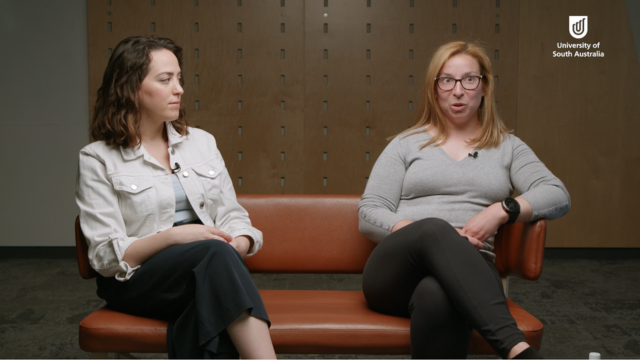Bachelor of Psychology (Honours)
Degree Level Undergraduate
Year 2025
You're considered an Australian student if you are any of the following:
Degree Level Undergraduate
Year 2025
Entry Scores
2025 Guaranteed Entry
Year 12 (ATAR-based): 85.00
Year 12 (Grades-based): NA
TAFE/RTO: AdvDIP
View Guaranteed Entry Info
2024 Cut-Offs
Year 12 (ATAR-based):
- Internal: 85.00
TAFE/RTO: Dip
View full entry requirements
The admission criteria have been grouped to assist you to easily find the information most relevant to your circumstances. However, you may fit into more than one and the university will consider applicants against each of the relevant criteria.
Certain conditions apply. For more information refer to Appendix 4 of the University's Selection and Entry policy.
Applicants are required to meet one of the following criteria with a competitive result, and demonstrate that they fulfil any prerequisite requirements and essential requirements for admission:
Recent secondary education
Meet any prerequisite requirements with a minimum grade of C- or equivalent
AND
Applicants who have not achieved the Selection Rank required for automatic selection may be selected for any remaining places based on the grades of their year 12 subjects.
OR
Higher education study
OR
Vocational Education and Training (VET)
OR
Work and life experience
Students commencing mid-year may require more than 4 years to complete their program due to the program structure and Honours requirements, with some semesters undertaken at a maximum load of 0.8 FTE. International students should contact the international student enquiries team for details.
1Ranked #7, ComparED (QILT) Student Experience Survey 2021-22, Skills Development Indicator (Undergraduate). Public universities. 2The only university in SA to have all its assessed Psychology and Cognitive Sciences research rated well-above world standard. 2018 Excellence in Research for Australia (ERA). 3Ranked #6, ComparED (QILT) Student Experience Survey 2021-22, Learning Resources Indicator (Undergraduate). SA public universities.

This degree will provide you with an understanding of psychological theory, psychology research methods, critical and analytical thinking; and counselling and interpersonal skills.
As an honours student you will focus on research methodologies and you will graduate with the ability to design, conduct and evaluate research. UniSA has been ranked number one in South Australia for psychology research1, and as part of your studies you will graduate with specialised knowledge and skills in this area.
Our world-class learning facilities will enable you to learn in simulated real-world environments, equipping you with hands-on, practical skills upon graduating.
With further study you can gain the experience needed to work in a clinical setting and become a registered psychologist or research psychologist. To follow this career path, you must complete additional postgraduate studies in psychology. Find out more.
1The only university in SA to have all its assessed Psychology and Cognitive Sciences research rated well-above world standard. 2018 Excellence in Research for Australia (ERA).

Core psychology courses, along with an Indigenous studies and professional development course, will make up your first three years of study. During your third year you will also select from a number of psychology-specific professional development courses, complementing the degree’s core content. These courses include:
During your final year you will undertake advanced coursework and a supervised research project. You will also choose from a selection of electives, giving you the opportunity to study courses from another discipline or area of interest.
You can gain an extra qualification and broaden your career prospects by completing a Diploma in Languages.

This honours degree is taught by researchers who are world-class in their field, at a university ranked number one in South Australia for research in Psychology1.
As part of your studies you will complete in-depth research and project work, which will equip you with the specialised skills you will need for a career in this area.
As an honours student you will focus on research methodologies and gain the ability to design, conduct and evaluate research. Our world-class learning facilities enable you to learn in simulated real-world environments, equipping you with hands-on, practical skills upon graduating.
1The only university in SA to have all its assessed Psychology and Cognitive Sciences research rated well-above world standard. 2018 Excellence in Research for Australia (ERA).
Hear from UniSA staff and former Psychology students Dr Alex Agostini and Dr Stephanie Centofanti on where a degree in Psychology can take you.

The ability to listen and analyse, coupled with critical thinking skills and an interest in human behaviour and biology are key attributes of students considering a career in psychology.
As a graduate you will be qualified to work in a range of areas including the health and human services sectors, research organisations, government, and non-government organisations.
Careers to consider include:
*To follow this career path at UniSA, you will need to complete further study. Find out more.
This program is accredited by the Australian Psychology Accreditation Council. On completion of the program, graduates will have met the academic requirements for associate membership of the Australian Psychological Society and the prerequisites to apply for postgraduate study in Psychology.
Have any questions? We're here to help! Contact Adelaide University's Future Student Enquiries Team.
Applying to study with us:
Australian
There are other pathways you can follow to study this degree, including:
This degree is available for deferment. This option is made available by responding to your offer during the application process via the SATAC website. Applicants who receive an offer into a midyear degree are eligible to defer for six months.
Every year, over 2,500 UniSA students are supported in their studies through scholarships and grants worth millions of dollars. Check out the scholarships below. One of them may be perfect for you. Visit our scholarships page for more.
$5,000 scholarship for South Australian students with an ATAR of 99 who enrol to study a UniSA undergraduate degree.
Up to $10,000 per annum (full time) for South Australian students who obtain an ATAR of 99.95 or IB equivalent and enrol to study at UniSA.
Our campuses are home to fantastic facilities including modern lecture theatres, libraries, workshops and laboratories, as well as spaces that simulate real work environments. But you’ll also discover that your journey at UniSA is about social experiences, healthy living and getting involved. You’ll find student sports and fitness facilities, community clinics, tech zones and chill-out spaces. There are campus sport activities to keep you active, and if you are keen to explore the social side of university life, there are movies, cooking demonstrations, parties and loads more.
Adelaide also has a variety of accommodation options to suit different requirements and budgets. Options include dedicated student accommodation and private rentals. See our long-term accommodation pages, or explore our student accommodation by Scape on Bank Street in Adelaide’s lively cultural precinct, an ideal location for students. It is within easy reach of UniSA’s city and metropolitan campuses, Rundle Mall shopping, the Central Market, Chinatown, and the West End’s vibrant nightlife. It is also across the road from the Adelaide train station, and on bus and tram routes.
As a psychology student, you will have access to dedicated teaching and learning spaces, including:

My teaching is driven by the desire to contribute to the education of the next generation of psychology professionals so they too can apply their knowledge of the science of psychology across the interesting and diverse careers they pursue. One of the great joys of the honours year in psychology is seeing each student draw together all of the knowledge and skills they have developed in their course, to identify a research question they are deeply interested in, and under the mentoring of an experienced staff member, conduct their own research project and make a contribution to new knowledge and insights in the field.

The way you apply for UniSA will depend on the undergraduate or postgraduate coursework degree you're interested in studying.
The majority of applications are made via the South Australian Tertiary Admissions Centre (SATAC). Check out more information on the SATAC website and follow the appropriate process for your degree of interest.
There are a small number of degrees that you need to apply for through direct application processes. The process you need to follow will be listed on the 'How to Apply' section of the degree homepage, but you'll also be taken to where you need to go if you hit the 'apply' button.
If you are interested in studying one of our 100% online degrees you'll need to apply directly to UniSA Online.
You can find more information about the application processes for UniSA on our How to Apply webpage.
If you're more interested in applying for a postgraduate degree by research, check out and follow the information in our step by step guide to applying.
Applications for all degrees will close ahead of study commencing, but the timelines may vary for undergraduate and postgraduate degrees.
The deadline to apply to study a degree at UniSA for semester one (commencing late February) and be guaranteed equal consideration is generally in very late November or early December. While you may be able to apply after this date, you are not guaranteed to be considered equally with other applicants and your application may not be assessed in time for the main round of offers. More competitive degrees may not make any offers after the main offer round. Find more information on the Key Dates section of the SATAC website, but you can also call the Future Student Enquiries team for more information on 08 8302 376.
Many postgraduate by coursework degrees do not have set closing dates. The exceptions are highly competitive degrees, so it is best to check – either on the degree homepage on the SATAC website or by checking with our Future Student Enquiries team.
As most postgraduate applications are assessed as they are submitted and offers are continuous, there are no set closing dates for applications. Degrees can be filled and closed with little notice so it is best to apply as soon as possible to avoid missing out on a place. For more information, please contact our Future Student Enquires team on (08) 8302 2376 or submit an enquiry.
You may be eligible for credit or advanced standing for your chosen UniSA degree based on your previous studies, if they are in a related area and completed within a certain timeframe. Receiving credit or RPL will reduce the number of courses you undertake within the degree, and may also reduce the overall duration of your degree. You can read more about our pre-existing credit agreements through our online Credit Assessor. If you have related industry experience, you may also be eligible to receive recognised prior learning (RPL) for this experience. Credit and RPL is assessed by the Program Director once you've received an offer, and you apply through UniSA's current student experts, Campus Central.
Future Student Enquiries welcomes the opportunity to meet with you to discuss your study options at UniSA. We can discuss degree information, entry requirements and pathways, applications, general career outcomes and student life, so you have the information to make the best study decision for your future. Head to our Book an Appointment webpage to find a date and time to speak with us, and take your next steps on journey to university study.